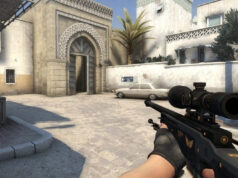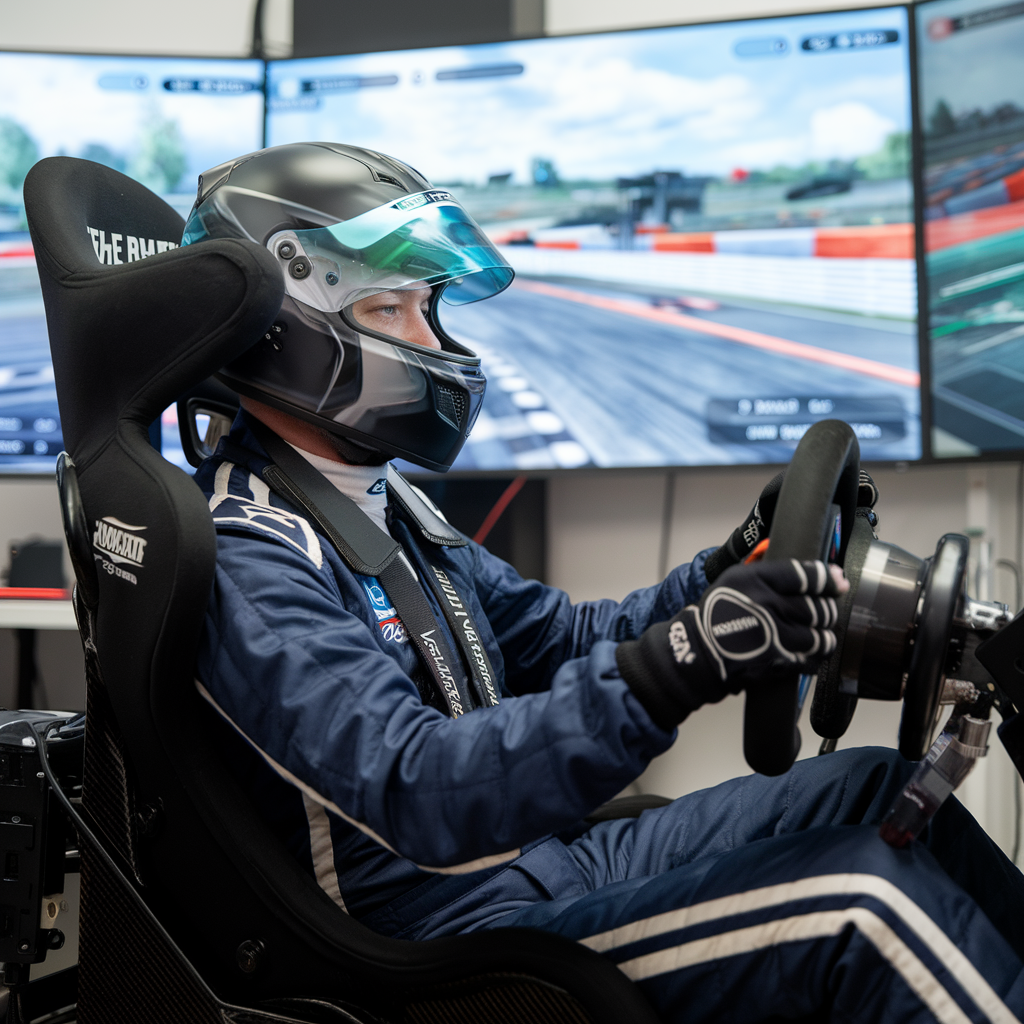
Sim racing is more than just a hobby; it’s a discipline that requires focus, practice, and attention to detail. Many beginners approach sim racing with enthusiasm but often make mistakes that hinder their progress.
These errors are common among new sim racers and can be avoided with the right approach and mindset. In this article, we’ll outline the top mistakes to avoid if you want to get better at sim racing.
1. Not Investing in a Proper Setup
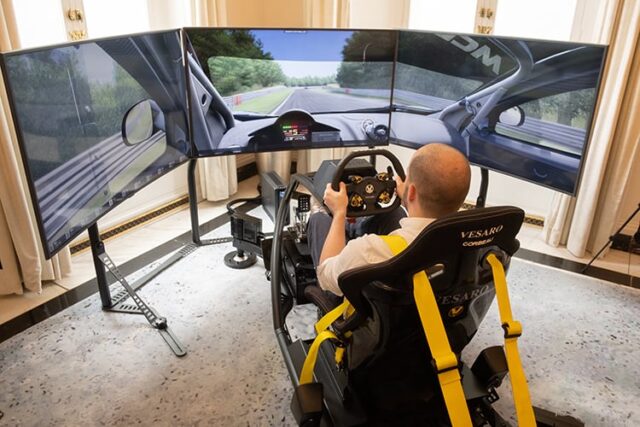
One of the biggest mistakes beginners make is not investing in a proper setup. The allure of jumping right into the racing action without a good-quality steering wheel, pedals, and seating arrangement can be tempting.
However, this approach will ultimately limit your ability to improve. A quality steering wheel and pedal set provide the necessary feedback to replicate real-world racing scenarios accurately.
They enhance your control over the vehicle and allow you to practice the finer nuances of driving techniques. Moreover, having a proper seating arrangement helps maintain the right posture, reducing fatigue during long practice sessions.
Beginners who want to excel should invest in a setup that mimics real-world driving conditions as closely as possible.
For those who are serious about advancing, it is essential to learn sim racing by starting with a quality setup that supports your development.
Neglecting Consistent Practice
Another common error is neglecting to practice regularly. Many new racers believe that simply participating in online races or playing casually will lead to improvement. In reality, consistent practice is crucial.
Sim racing, much like any other skill, requires time and dedication. Regular practice sessions allow you to familiarize yourself with the car’s behavior, the track’s layout, and the racing dynamics.
It’s important to set aside dedicated practice time, focusing on different aspects such as cornering techniques, braking points, and throttle control.
Without regular practice, your progress will be inconsistent, and your ability to react to various racing scenarios will remain underdeveloped.
Ignoring Car Setup Options
Lack of attention to car setup is another pitfall that hinders many sim racers. Each car in sim racing comes with its own unique handling characteristics, which can be further customized to suit personal preferences and track requirements.
Ignoring car setup options means missing out on optimizing your vehicle’s performance. Adjusting parameters like tire pressure, suspension settings, and gear ratios can significantly impact lap times and overall handling.
New racers often underestimate the importance of these adjustments, leading to suboptimal performance.
Taking the time to understand and experiment with car setups is crucial for those aiming to improve their sim racing skills. A well-tuned car can make the difference between a good lap time and a great one.
Lack of Track Knowledge
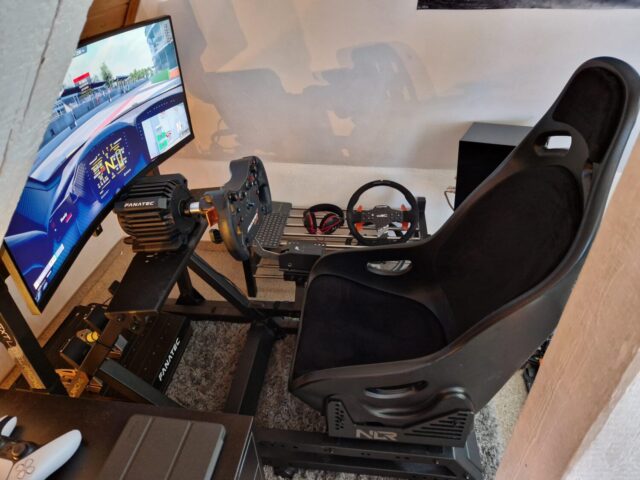
A common mistake among new sim racers is ignoring the importance of track knowledge. While it might be tempting to hop between different tracks, this approach can prevent you from mastering the intricacies of each course.
In real-world racing, drivers spend countless hours learning the specifics of a single track. Sim racers should adopt the same approach. Mastering a track involves understanding the best racing line, optimal braking points, and how to navigate challenging corners.
It’s about building muscle memory so that your reactions become second nature.
Focusing on one track at a time and thoroughly learning its layout will improve your racing performance more effectively than jumping from one track to another without truly understanding them.
Failing to Analyze Performance
Another crucial aspect that is often overlooked is analyzing your performance. Many sim racers spend time driving without ever reviewing their laps to identify mistakes or areas for improvement.
Utilizing replay features and telemetry data can provide valuable insights into your driving style, braking habits, and cornering techniques.
Reviewing your performance helps pinpoint specific areas that need improvement, allowing you to make targeted adjustments in your practice sessions.
It’s essential to approach sim racing with a mindset geared toward continuous improvement, and analyzing your performance is a key component of that process.
Poor Racecraft and Over-Aggressiveness
Poor racecraft is a mistake that not only affects your performance but can also lead to unnecessary crashes and penalties.
Racecraft refers to the skill of navigating traffic, making overtakes, and defending your position effectively. New sim racers often adopt an overly aggressive approach, trying to make up positions quickly or making risky moves that lead to collisions.
Understanding racecraft involves patience, reading the movements of other drivers, and knowing when to make a move.
By focusing on clean and strategic racing, you’ll not only avoid incidents but also gain respect from fellow racers. Practicing racecraft in controlled environments, such as offline races or less competitive online lobbies, can help hone these skills.
Overlooking Physical and Mental Fitness
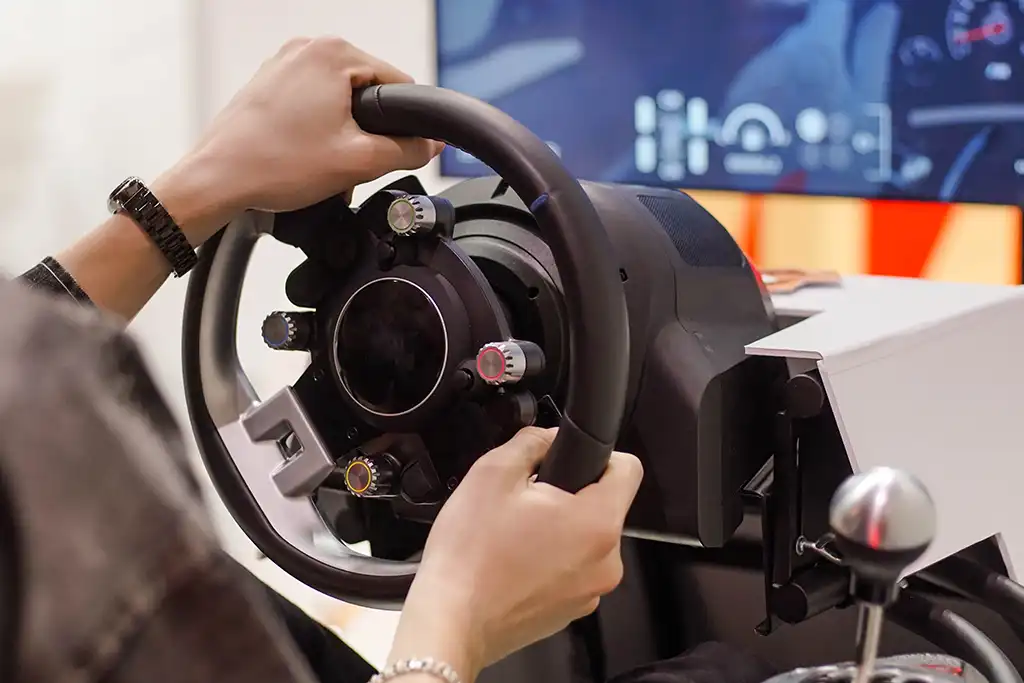
Sim racing might not be as physically demanding as real-world racing, but it still requires a good level of physical and mental fitness. Long racing sessions can lead to fatigue, which affects concentration and reaction times.
Maintaining good physical fitness can help manage the physical strain of long races, especially when using force-feedback wheels that simulate real steering resistance.
Mental fitness is equally important; staying calm and focused under pressure can make a significant difference in performance.
Techniques such as deep breathing, mental visualization, and regular breaks can help maintain concentration and reduce stress levels during intense racing scenarios.
Not Taking Advantage of Learning Resources
Many beginners do not fully utilize the wide range of learning resources available to improve their sim racing skills.
Online tutorials, forums, and racing communities offer a wealth of information that can help new racers overcome challenges and enhance their performance.
For those who are serious about advancing their skills, enrolling in a structured course can provide valuable insights and techniques.
Disregarding Realism for Short-Term Gains
Another mistake is disregarding realism in favor of short-term gains, such as using unrealistic car setups or exploiting game mechanics to gain an advantage.
While this might lead to better lap times initially, it doesn’t build the skills needed for long-term improvement.
Focusing on realistic driving techniques and setups will provide a solid foundation that can be applied to various racing scenarios.
Staying true to realistic racing principles not only improves your skills but also enhances the overall enjoyment and satisfaction of sim racing.
Lacking Patience in Skill Development
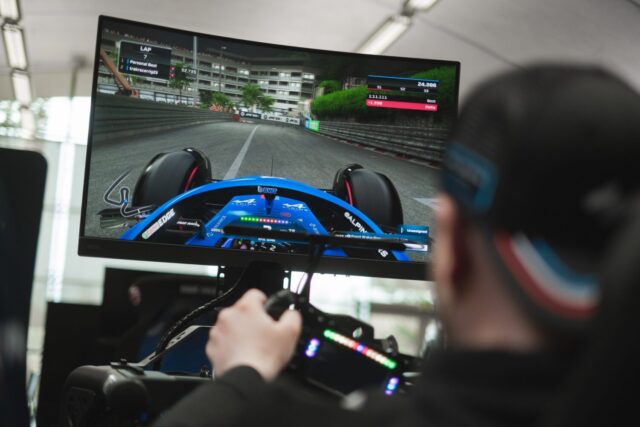
Finally, one of the biggest mistakes is lacking patience. Sim racing is a skill that takes time to develop. Expecting immediate results can lead to frustration and burnout. Progress might seem slow at times, but consistent effort and practice will lead to improvement.
Conclusion
Avoiding these common mistakes will set you on the right path toward becoming a better sim racer.
By investing in a quality setup, practicing regularly, understanding car setups, learning tracks thoroughly, analyzing your performance, developing good racecraft, maintaining fitness, utilizing learning resources, adhering to realism, and being patient, you can significantly enhance your sim racing skills.
Remember, the key to improvement lies in a consistent, dedicated approach to learning and practice.

